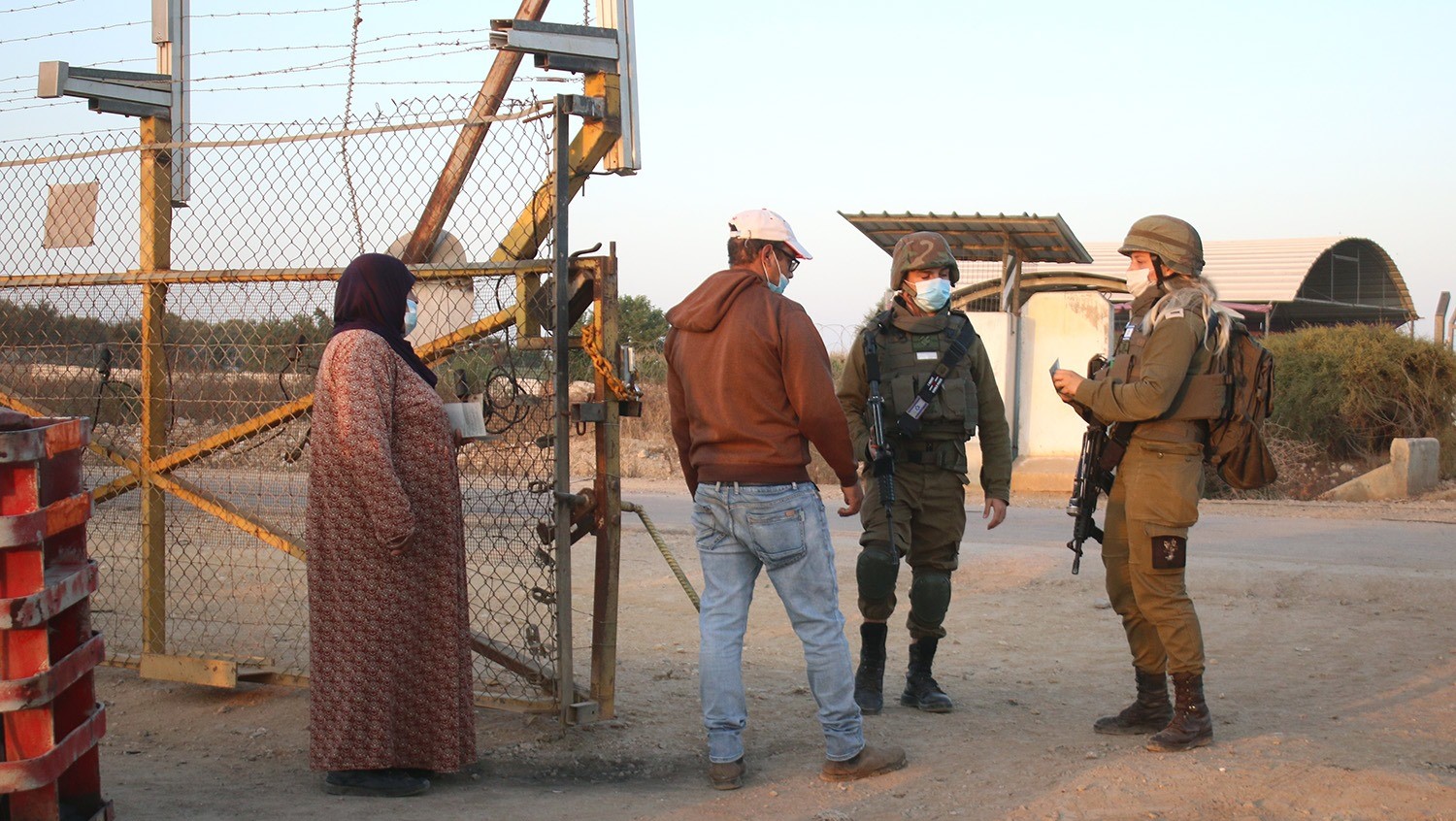A position paper recently published by the Israeli NGO HaMoked – The Center for Defense for the Individual – describes how the occupation regime’s long-standing freeze of the Palestinian population registry, effectively controlling it, infringes basic human rights of thousands of persons living under the military rule. The paper covers the legal and historical background of this issue, highlighting the predicament of thousands of Palestinian families where one of the spouses is a foreigner without status in the occupied Palestinian territories or a West Bank resident with a Gaza address.

Occupation soldiers verify the identity of Palestinian farmers in the West Bank. (Photo: Activestills)
The Israeli military maintains decisive control over the Palestinian population registry for the West Bank and Gaza Strip, although the day-to-day administration of the registry was transferred to the Palestinian Authority. Since the year 2000, Israel has effectively frozen all changes to the Registry. There are two primary populations falling victim to Israel’s refusal to update the population registry: foreign spouses of Palestinians and Palestinians who live in the West Bank, but whose registered address is in the Gaza Strip.
Freezing of Family Unification
Since 2009, Israel has halted and completely frozen the approval of applications for family-unification. Family unification is not an act of benevolence on Israel’s part; the right to family life is a fundamental right. Israel’s freeze policy on family unification is driven by external political considerations, is in violation of the occupier’s obligations under international law, and leads to a severe infringement of the rights of tens of thousands of Palestinians who wish to live with their families in the West Bank. The prolonged, indefinite nature of the Israeli Occupation makes the freeze on family unification all the more problematic.
Unilateral Policy of Gaza-West Bank Separation
In 2000 Israel halted all changes of address between the Gaza Strip and West Bank in its copy of the population registry. Israel now views registration in either the West Bank or Gaza as a type of national status, and relocating from one area to the other is construed in terms of immigration policy. In fact, it is a one-way policy: the military allows Palestinians to relocate from the West Bank to Gaza, on condition that they pledge to permanently “settle” in Gaza without any intention of returning to the West Bank. However, applications for relocation from Gaza to the West Bank are automatically rejected. Israel’s Gaza-West Bank separation policy seriously impacts basic human rights enshrined in international humanitarian law, international human rights law and Israeli constitutional law. Primarily affected is the right of every person to move freely within their country of residence and freely choose where to live there. The violation of this right often leads to violations of the rights to family life, health, education, a livelihood and freedom of occupation.
Dire Infraction of International Humanitarian Law
While there are no precise figures on the size of the two populations covered in the position paper, experts estimate that together they certainly include tens of thousands of individuals. In both cases, these people are already present in the West Bank, where they have lived for years and even decades. Yet they are considered “illegal aliens” in their homes, forcing them to live under highly restrictive conditions with the constant risk of being deported.
As the military occupier of the occupied Palestinian territory (OPT) Israel has the irrevocable legal obligation to respect the rights of the population under its control, and to enable them to live with their families in safety and dignity. Doing otherwise represents a dire infraction of international humanitarian law.
Download complete position paper as a PDF file (English, 3 pages)


